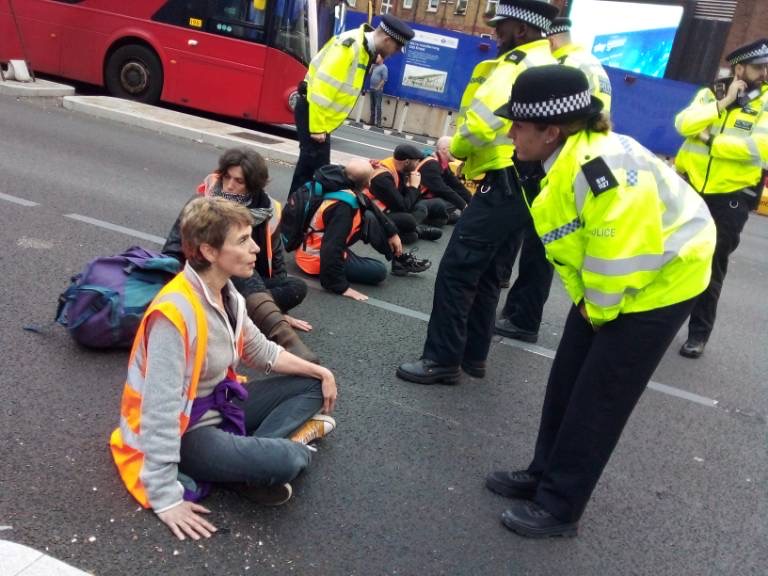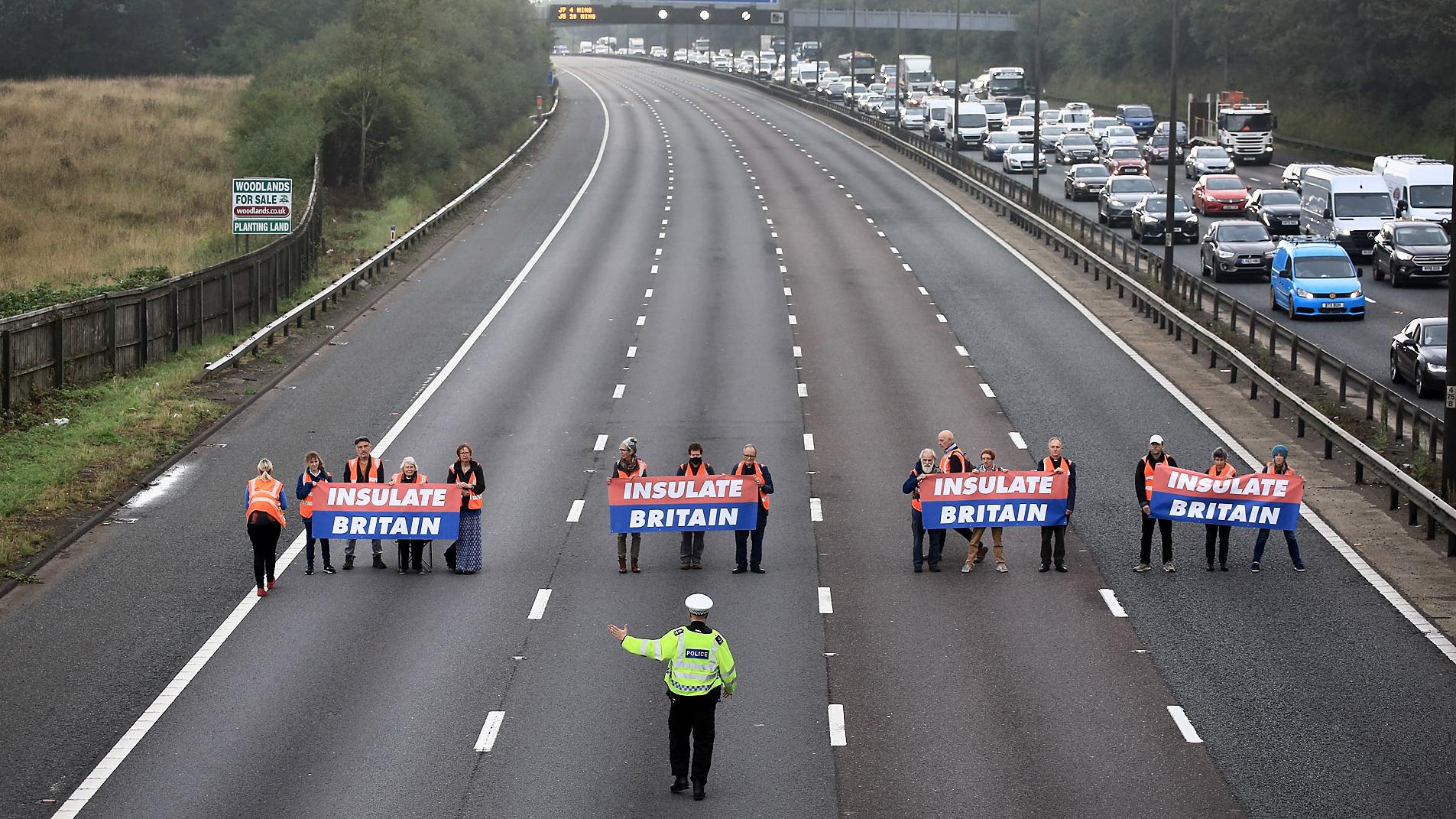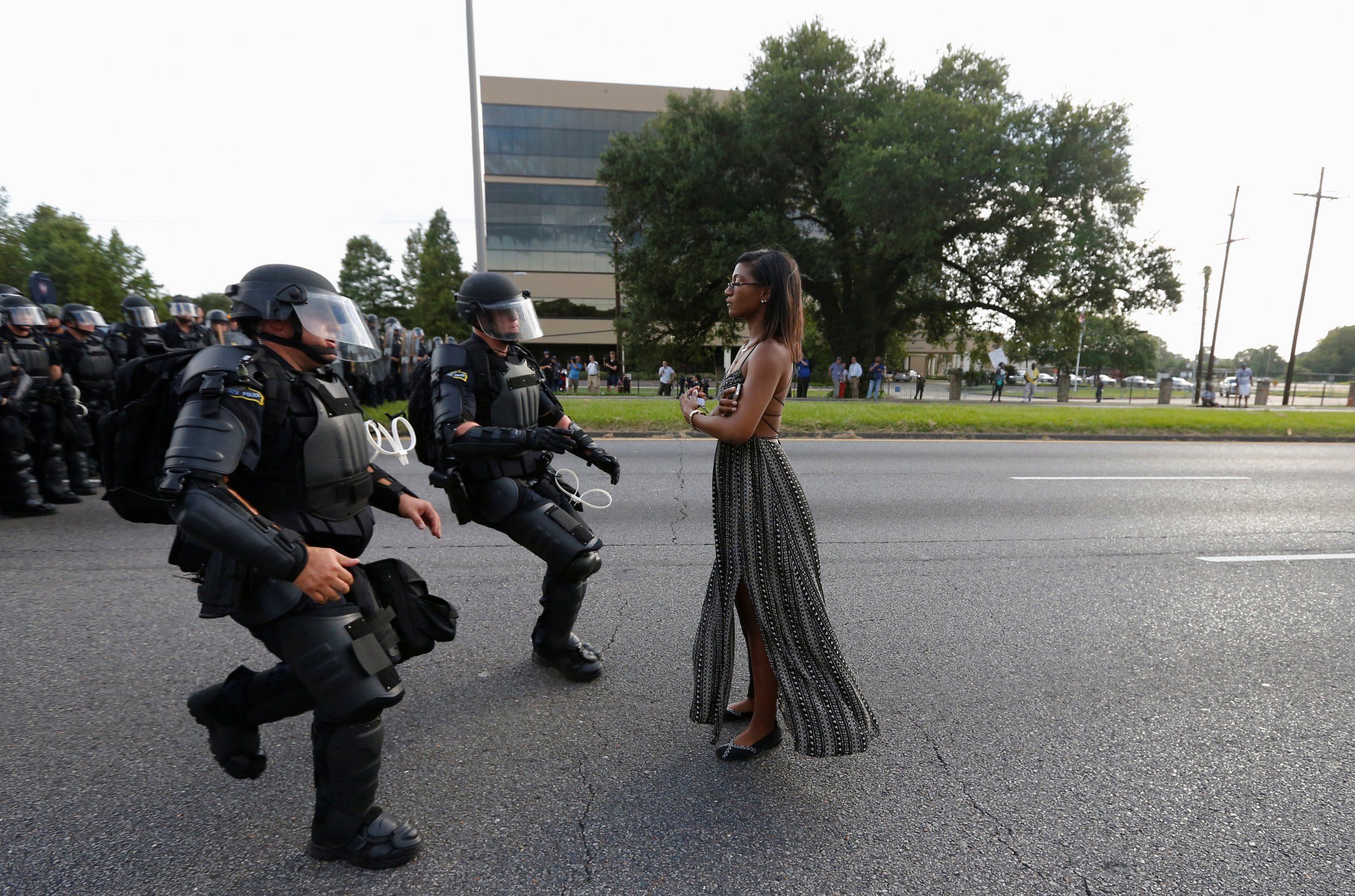What is Nonviolence?

To describe nonviolence, we first have to explore its direct opposite –
violence. Violence is ever present in many aspects of our society.
Consider the films you watch, the news, media, ordinary relationships in
schools, within households, on the street, how the government treats destitute
migrants and the swelling numbers of children living in poverty in the UK. Do
you notice the violence? How does it make you feel?
Hannah Arendt, political philosopher born into a German Jewish family in 1906,
said “Violence can destroy power; it is utterly incapable of creating it.”
Violence is a way of consolidating power by holding power over others.
This results in suffering and harm. It prevents peoples’ needs being met and
creates injustice. It is centred on oppression.
Nonviolence is a way of sharing power by providing for agency to ‘all’,
including the oppressors. It is centred on empathy.
Nonviolent civil resistance exists only when violence is actively
confronted. This could mean causing disruption which is hard to ignore and, in
this way, creates pressure for change. When civil resistance is explicitly
named, framed and claimed as “nonviolent” it can challenge injustice, without
needing to resort to violence. Nonviolence does not claim to have the answers
but seeks dialogue out of which solutions can arise.
Opposing violence without confrontation could be described as
'not-being-violent'. It is easy for powerful oppressors to ignore such
opposition, even when very large numbers of people participate. It is centred
on passivity.

Here’s a selection of quotes which may help to illustrate what nonviolent civil
resistance is and is not:
Martin Luther King said with regard to the reformist violence of his time:
"First, I must confess that over the past few years I have been gravely
disappointed with the white moderate. I have almost reached the regrettable
conclusion that the Negro's great stumbling block in his stride toward freedom
is not the White Citizen's Counciler or the Ku Klux Klanner, but the white
moderate, who is more devoted to "order" than to justice; who prefers a
negative peace which is the absence of tension to a positive peace which is the
presence of justice; who constantly says: "I agree with you in the goal you
seek, but I cannot agree with your methods of direct action"; who
paternalistically believes he can set the timetable for another man's freedom;
who lives by a mythical concept of time and who constantly advises the Negro to
wait for a "more convenient season." Shallow understanding from people of good
will is more frustrating than absolute misunderstanding from people of ill
will. Lukewarm acceptance is much more bewildering than outright rejection."
"In the end, what will hurt us the most is not the words of our enemies but the
silence of our friends."
Martin Luther King
"Nonviolent resistance is not a tactical and big politics battle, it is a
matter of placing truth and personal life against lies and murder. If that
spirit is not there it is also not "nonviolent", just "not violent". I deeply
believe that the strength of nonviolence comes from ordinary human weakness and
honesty in front of organised oppression and violence, it is what makes the
injustice visible"
Stellan Vinthagen
"Nonviolence is not being a bystander: to expose violence by creating a
situation where people who witness it can have an emotional connection to it
and then want to stop the violence."
Sally Davidson
during the Heathrow Airport 10 trial, 2025
"There is a source of power in each of us that we don’t realise until we take responsibility."
"Freedom, by definition, is people realising that they are their own leaders."
Diane Nash, Freedom Rider of the Civil Rights Movement
"The really inspiring lives, they’re the lives of people who acted for the good
even when there seemed to be no point."
Carmody Grey
"We may win big, we may win small, we may lose everything. We can take
whichever outcome. Important: stand where you must stand, be human there."
Daniel Berrigan
"Love runs towards…."
Shoreditch Fire Station engraved in stone
"People rarely accept evil through saying ‘yes’ but they regularly accept it
through not saying ‘no’."
Simon B XR

REUTERS/Jonathan Bachman


